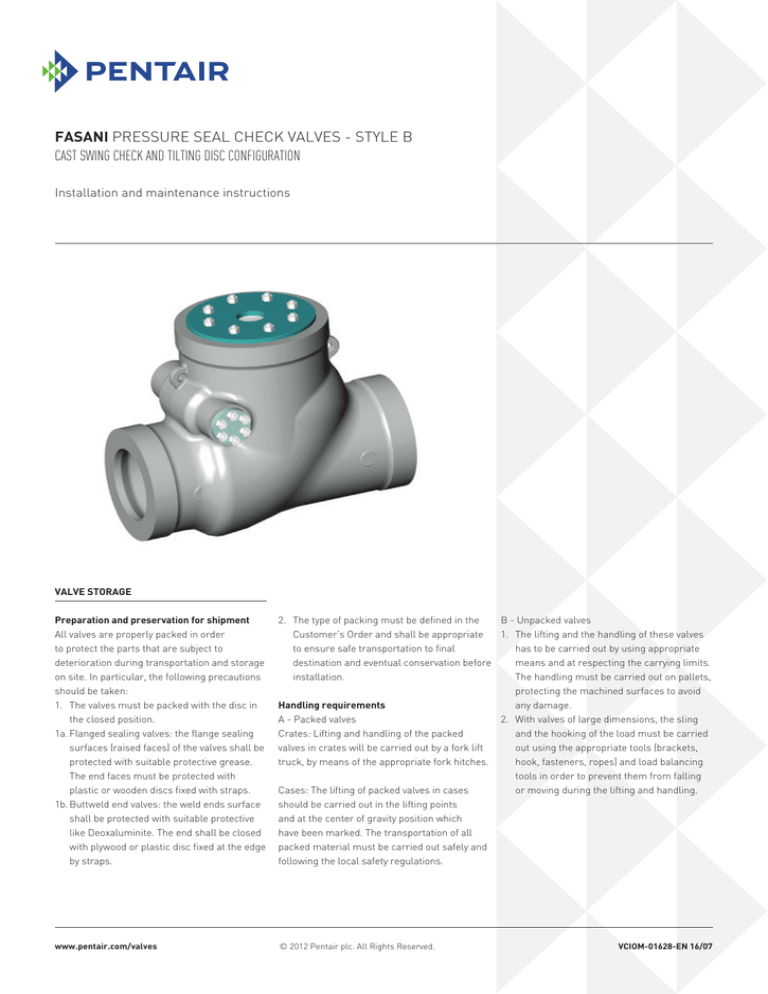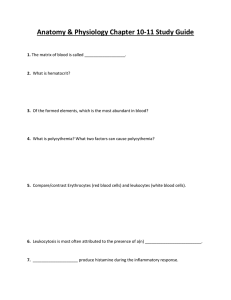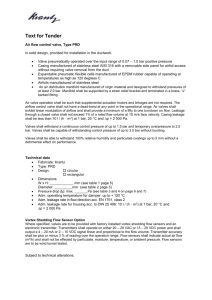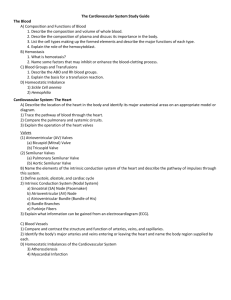
Fasani Pressure Seal Check Valves - Style B
Cast Swing check and tilting disc configuration
Installation and maintenance instructions
Valve storage
Preparation and preservation for shipment
All valves are properly packed in order
to protect the parts that are subject to
deterioration during transportation and storage
on site. In particular, the following precautions
should be taken:
1.The valves must be packed with the disc in
the closed position.
1a.Flanged sealing valves: the flange sealing
surfaces (raised faces) of the valves shall be
protected with suitable protective grease.
The end faces must be protected with
plastic or wooden discs fixed with straps.
1b.Buttweld end valves: the weld ends surface
shall be protected with suitable protective
like Deoxaluminite. The end shall be closed
with plywood or plastic disc fixed at the edge
by straps.
B - Unpacked valves
2.The type of packing must be defined in the
1.The lifting and the handling of these valves
Customer’s Order and shall be appropriate
has to be carried out by using appropriate
to ensure safe transportation to final
means and at respecting the carrying limits.
destination and eventual conservation before
The handling must be carried out on pallets,
installation.
protecting the machined surfaces to avoid
Handling requirements
any damage.
A - Packed valves
2. With valves of large dimensions, the sling
Crates: Lifting and handling of the packed
and the hooking of the load must be carried
valves in crates will be carried out by a fork lift
out using the appropriate tools (brackets,
truck, by means of the appropriate fork hitches.
hook, fasteners, ropes) and load balancing
tools in order to prevent them from falling
Cases: The lifting of packed valves in cases
or moving during the lifting and handling.
should be carried out in the lifting points
and at the center of gravity position which
have been marked. The transportation of all
packed material must be carried out safely and
following the local safety regulations.
www.pentair.com/valves
© 2012 Pentair plc. All Rights Reserved.
VCIOM-01628-EN 16/07
Fasani Pressure Seal Check Valves - Style B
Cast Swing check and tilting disc configuration
Valve slinging
Figure no. 1
Storage and preservation before Installation
In case the valves have to be stored before
installation, the storage has to be carried out
in a controlled way, and has to be performed in
accordance with the following criteria:
1.The valves have to be stocked in a closed,
clean and dry storage room.
2.The disc must be in the closed position,
and the end faces must be protected with
plastic or wooden discs fixed with straps. If
possible, keep the original protection.
3. Periodical checks have to be carried out
in the storage area to verify that the above
mentioned conditions are maintained.
Note
Storage in an open area for a limited period can be
considered only in case the valves have appropriate
packing (packed in cases lined with tarred paper, and
contents well protected with barrier sacks).
Installation
Preparation before installation
1. Carefully remove the valve from the
shipping package (box or pallet) avoiding any
damage to the valve.
2. Clean the inside of the valve using an air
line. Ensure that there are no solid objects
such as pieces of wood, plastic or packing
materials within the valve or on the valve
seat.
3. Confirm that the materials of construction
listed on the valve nameplates (service and
temperature) are appropriate for the service
intended and are as specified.
4. Define the preferred mounting orientation
with respect to the system pressure. The
arrow on the body identifies the upstream
side (high pressure) and downstream side
(low pressure).
Do not place consignment packages directly on the
ground.
Do not expose consignment packages to the weather
or directly to the sun.
Check the packaging every two months.
Caution
For valve handling and/or lifting, the lifting
equipment (fasteners, hooks, etc.) must be sized
and selected while taking into account the valve
weight indicated in the packing list and/or delivery
note. Lifting and handling must be made only by
qualified personnel.
Caution must be taken during the handling to
avoid that this equipment passes over the workers
or over any other place where a possible fall
could cause damage. In any case, the local safety
regulations must be respected.
Warning
Verify that the direction of the flow in the line
corresponds to the arrow indicated on the valve
body.
2
Fasani Pressure Seal Check Valves - Style B
Cast Swing check and tilting disc configuration
Figure no. 2
Installation positions recommended
Piston Check
Y Pattern Piston Check
Installation instructions
Check valves are normally installed in
horizontal pipe, but can also be installed in
vertical pipe with upward flow.
For a correct operation, we recommend
that the valve shall be installed and oriented
following the indications of Fig. 2.
This can help minimize any problem associated
with solid particles present in the fluid that
otherwise could deposit in the lower part of
the body and be obstacle to the disc complete
closure.
Unless otherwise recommended, the valve
should be installed with the disc in the closed
position, to ensure that the seat ring in the disc
is not damaged during installation.
For operating temperatures above 200°C
(392°F) thermal insulation of the valve body is
recommended.
Handling and lifting of the valves during
installation MUST be performed following the
same criteria and instructions described in
previous points “Handling requirements” and
“Storage and preservation before Installation”.
Buttweld valves
Position the valve and check the alignment
with the pipe, then proceed with welding,
in accordance with the applicable welding
procedure.
Swing Check and Tilting Disc
Important
If piping system is pressurized with water for
testing, and in case the piping system has been
shut down after testing for a long time, the
following recommendations should be adopted.
a. Use corrosion inhibitor with water to pressurize
the piping system
b. After testing, the piping system should be
depressurized and the test water completely
drained.
Flanged valves
Place the valve between the two flanges of the
pipe and put the seal gasket between the valve
flange and the pipe flange; make sure that it is
correctly positioned. Then assemble the valve
to the pipe by the bolts which will be tightened
crossing. Progressively reach the requested
torque value indicated by the Engineering
Company that designed the plant.
Important
After the valves installation and before the
line testing, it is recommended to perform an
accurate cleaning of the lines to eliminate dirt and
any foreign objects that could seriously jeopardize
the tightness between seat/disc and the correct
operation of the valve.
Valve verification before start up
1. If the valve has been stored for a long time,
check the bolt torque for bolting (pos. 31) in
accordance with table I.
Table I: Bolt Torque to Ensure
Tightness of Pressure Seal Gasket
Position 31 for Check valves
Stud
Torque ft.lbs.
Torque Nm
⅜
½
⅝
¾
⅞
1
1⅛
1¼
1⅜
18
37
74
125
207
310
443
627
811
24,5
50
100
170
280
420
600
850
1100
Important
To ensure tightness of pressure seal gasket, pull
up bolts must be tightened when valve is under
fully hydrostatic test pressure.
Operations instructions
1.Style B Series check valves do not require
special care to work properly.
The following instructions will help provide a
satisfactory and long life service.
2. Make sure to perform periodic valve
verification as described in next paragraph.
Periodic valve verification during service
A - Normal check
1. Verify monthly that there is no leakage
from the body/bonnet area. If the leakage
has been detected from the body/bonnet
area, tighten the nuts (pos. 31) as indicated
in Table I. If the leakage does not stop,
follow the maintenance procedure for the
replacement of the body/bonnet gasket
(page 4).
B - Preventive actions
1.Every 4 years disassemble the critical
service valves, verifying the sealing surfaces
and lap them again when necessary.
Substitute the bonnet gasket.
3
Fasani Pressure Seal Check Valves - Style B
Cast Swing check and tilting disc configuration
Troubleshooting Guide
Symptom
Possible cause
Solution
Body-bonnet leaking
1. Gasket bolting loose (pos 31)
1. Tighten bolting (pos 31)
2. Gasket damaged
2. Replace gasket
1. Valve not fully closed
1. Flush valve in order to close it
2. Debris trapped in valve
2. Cycle and flush (with valve open) to
remove debris
3. Sealing surface damaged
3. Recondition the sealing surface
Valve leaking
Maintenance
The Style B series valves have been designed to
require minimum maintenance.
This manual describes on site repairs as:
- Body/Bonnet gasket replacement
All the other repairs should be performed by
Pentair or nominated Service company.
Warning
Before starting any maintenance, depressurize,
drain and vent the line; check that the valves are
not in temperature.
Failure to do so may cause serious personal injury
and/or equipment damage.
Bonnet gasket replacement
Please refer to Figure no. 3.
1.Unscrew the nuts (pos.31).
2.Remove the retaining ring (pos.311).
3.Remove the segment rings, push them out
from the body groove by using the body
holes placed radially on the top of the body.
4.Lift up the bonnet (pos.6) and pressure seal
body gasket (pos.5).
5. Carefully clean all the gasket housing and
lubricate with suitable grease.
6.Replace the body gasket.
7.Reassemble all parts following backwards
the above mentioned steps.
Fig. no. 3
Caution
The nuts (pos.31) need to be retightened after
valve first pressurization, as indicated in Table I.
Valve Removal
If the valve needs to be removed from the line
for some extraordinary reason, the user should
ensure the following:
1.The valve is depressurized, drained and
vent;
2.The pipe shall be cut as far away from the
valve as possible.
Special Tools
No special tool required for the maintenance
operation described in this manual.
PENTAIR VALVES & CONTROLS
www.pentair.com/valves
All Pentair trademarks and logos are owned by Pentair plc. All other brand or product names are trademarks or registered marks of their respective owners.
Because we are continuously improving our products and services, Pentair reserves the right to change product designs and specifications without notice.
Pentair is an equal opportunity employer. © 2016 Pentair plc. All rights reserved.
4



